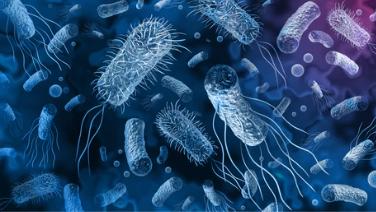Tea is one of the most popular and widely consumed beverages worldwide. Microorganisms are closely associated with tea; the most typical ones are microbial fermentation of black tea, black tea bacteria, etc. At present, the research and application of microorganisms in the tea field is gradually broadening and deepening, involving tea planting, tea processing, and tea storage, and other links. Tea in the industrial manufacturing process, tea extracts can be stored without sterilization. The low acidity and nutrient-rich nature of tea extracts facilitate the growth of contaminating microorganisms. Therefore, beverage manufacturers need to monitor the contamination level of tea extracts on site to minimize product accidents and loss of sensory quality.

Microorganisms can grow in tea even if it contains catechins. Therefore, it is necessary to confirm the level of contamination of tea extracts during processing and the sterility of bottled products to ensure that food safety regulations are met. To reveal the microbial biotransformation of chemical components in tea, our experts have conducted numerous studies on the community structure and dynamics of microorganisms during the fermentation process.
We offer a variety of simple and reliable methods to analyze the community structure and dynamics of tea microorganisms, including:
Tea is highly susceptible to microbial contamination in processing and other areas, which affects its quality. As a recognized leader in tea testing, Lifeasible can test for a wide range of tea bacteria, including but not limited to:
| E. coli | Salmonella | Listeria monocytogenes | Staphylococcus aureus |
| Vibrio parahaemolyticus | Bacillus cereus | Shigella | β-type hemolytic streptococcus |
| Clostridium botulinum | Vibrio cholerae | Aspergillus | Campylobacter jejuni |
| Enterobacter sakazakii | Yersinia enterocolitica | Streptococcus faecalis | Streptococcus faecalis |
| Lactobacillus bulgaricus | Yeast | Parasites |
Rapid and effective tea microbiological testing is essential to protect consumer safety, achieve regulatory compliance, and minimize brand risk for manufacturers. Our industry insight, scientific expertise, and industry-leading technology allow us to quickly develop new products and protocols so that you remain adaptable, responsive, and competitive in the marketplace. Our tea bacteria testing is conducted in strict accordance with international standards.
Our scientists continue to develop the integration of new technologies such as photovoltaics, computer technology, etc. Our scientists continue to develop the integration of new technologies, such as photovoltaics and computer technology, to facilitate the early detection of microorganisms in tea plantation management, tea processing, tea hygiene quality, and tea products. If you are interested in our solutions, please contact us for technical consultation and quotation.
Lifeasible has established a one-stop service platform for plants. In addition to obtaining customized solutions for plant genetic engineering, customers can also conduct follow-up analysis and research on plants through our analysis platform. The analytical services we provide include but are not limited to the following:
Get Latest Lifeasible News and Updates Directly to Your Inbox
Adaptive Evolutionary Mechanism of Plants
February 28, 2025
Unraveling Cotton Development: Insights from Multi-Omics Studies
February 27, 2025